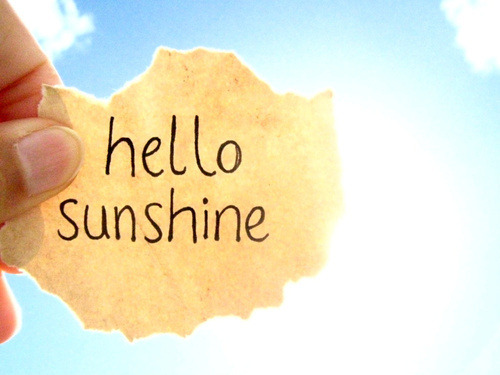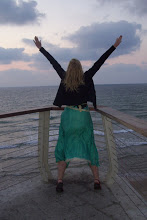I get up at sevenish and run for an hour or so on the elliptical while watching Lost, which is perfect because not only am I so sucked into the story that I almost don't feel myself ripping the fascioles of my gastrocnemii into small proteinaceous pieces, I also feel like I'm in the jungle running around with the Lost people. And, man, I would run anywhere with those guys.
I shower and style my hair/makeup/outfit/self while listening to my pretentiously international summer playlist which bears the distinction of having only one song to which I can understand all of the words (a favorite is a colloquial Lebanese Arabic indie tune in which all I can understand is شو مع لك؟ كيف تبان؟ [excuse the fact that I can't spell in
Shami, but let's face it, neither can anyone]).
Then I go to school. I'm not enrolled but since school is basically the only thing I really know how to do I go to classes to keep myself busy. Arabic is the high point, of course, as I really don't think I can love anything more than I love that language, and then I also attend Mission Prep, which I hope will be helpful and in which I am glad I'm not actually enrolled because there's only one teacher this term and he is a dude who seems to enjoy inflicting undue stress on the poor new freshmen who populate the class (today we sat through a 20-minute discussion about how to log on to Blackboard).
I finish classes around lunchtime and go home to eat whatever I can find in the fridge or, alternatively, convince someone to give me money so I can live it up with whatever foods I choose for my last month of life as I know it (a good argument which almost always works). I particularly enjoy shrimp tacos from Bajio, tomato soup from Zupas, and fat-free pistachio yogurt from Golden Spoon.
The afternoon is the hardest part of my day because I generally have nothing to fill it. I basically hang out at bookstores with the creepers and senior citizens who also don't have anything to do from 1-5 pm, and I wander the shelves picking up ten thousand things and sampling them and putting them back. I can't seem to really get into any solid reading this summer, which bothers me on like ten subconscious levels, the loudest of which keeps reminding me that I won't be able to read anything I want for the next eighteen months so I should freaking get a move on or else I'm going to regret it.
I take the GRE on Saturday, so I should probably study for that at some point, but it's crazy hard to make yourself stay inside and review trigonometry when the sun is shining and you know you have limited days during which you can drop everything, think about nothing, and just lay out in the sun, which I often do (and love doing).
In fact, on most days this behavior devolves into a series of existential crises which I experience face down on patches of grass throughout Provo. (Keep an eye out.) Today's took place outside Borders at around 3 pm, where I lay on my stomach across the token strip of grass by the west exit and thought myself out. It was a small strip of grass and I almost took up the whole thing, but I couldn't be exactly face down because my face would have been right on the seam between the square grass pieces, which I had lifted up earlier to examine the little grassy roots underneath and wonder at the irony of having woven grass squares and look for little bugs because something has to live down there and isn't the whole thing just like Heart of Darkness, but the very existence of grass squares might mean the wilderness is losing, so does that mean Conrad is wrong and if so what does that do to my worldview, maybe I should reread Death of a Salesman because Loman and his concrete prison are sounding more accurate than ever, but no, we've got Barbara Kingsolver in this corner with her jungle that eats itself and lives forever and isn't that my favorite image in all of literature, so shouldn't I be convinced despite the fact that I am laying on my stomach at three in the afternoon with my face between grass squares that probably came out of some factory in the Midwest where the economy makes the dude that pumps the dirt into the machines grateful he still has a job despite the fact that it is mind-numbing and pointless, unlike me, who has no job and is currently laying face down on his product while wearing a pencil skirt and heels in the middle of the day in full view of other bookstore customers and employees.
I eventually go home and have dinner with the fam and teach the two-year-old some Arabic and think about all the things I need to be doing that do not exactly have to take place right now, because I have five weeks to do them and if I do them all at once I will have nothing whatsoever to do for the next five weeks and that is what really will send me over the edge (if so much face time with the grass doesn't do it first).
Waiting to leave on a mission really
does seem interminable.












